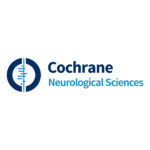
Do not perform an electroencephalogram (EEG) to patients who have experienced only transient loss of consciousness and have normal neurological examination and no history of epileptic symptoms.
In this context, it is extremely unlikely that the EEG will add elements to the clinical and anamnestic evaluation.
The EEG, on the other hand, is indicated if the following signs / symptoms suggestive of an epileptic seizure have been observed: bite of the tongue, head turned to one side or other specific postures, emotional changes witnessed before, during or after loss of consciousness, prolonged clonic movements of the limbs (consider that brief shocks can occur in cardiogenic syncope without epileptic significance), confusion at the end of the event and prodromes such as sensations of déjà vu or déjà-vécu (already seen or already experienced). An epileptic condition represents the most frequent neurological cause of loss of consciousness.
Sources
1. ESC Guidelines for the diagnosis and management of syncope European Heart Journal, Volume 39, Issue 21, 01 June 2018, Pages 1883–1948
2. NICE National Institute for Health and Clinical Excellence. Transient loss of consciousness (‘Blackouts’) Management in adults and young people. London: Royal College of Physicians (UK); 2010:11.
3. NICE National Institute for Health and Clinical Excellence. Clinical Guidelines, No. 109Transient loss of consciousness (‘blackouts’) in over 16s. London: 2014 Sep. ISBN-13: 978-1-4731-2287-1
4. Shen W-K, Sheldon RS, Benditt DG, Cohen MI, Forman DE, Goldberger ZD, Grubb BP, Hamdan MH, Krahn AD, Link
MS, Olshansky B, Raj SR, Sandhu RK, Sorajja D, Sun BC, Yancy CW. 2017 ACC/AHA/HRS guideline for the evaluation and management of patients with syncope: a report of the American College of Cardiology/American Heart Association Task Force on Clinical Practice Guidelines and the Heart Rhythm Society. Circulation. 2017;136:e60–e122. DOI: 10.1161/CIR.0000000000000499.
Download
PDFAttention. Please note that these items are provided only for information and are not intended as a substitute for consultation with a clinician. Patients with any specific questions about the items on this list or their individual situation should consult their clinician.


Recent Comments